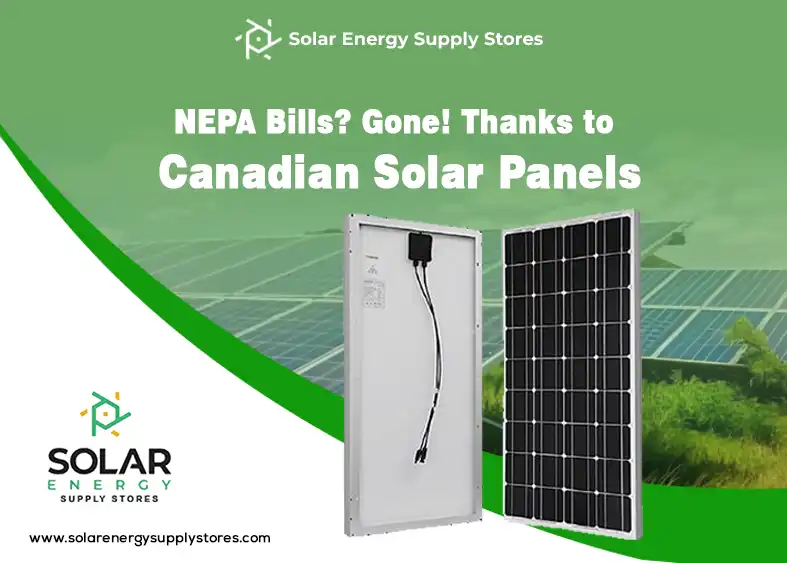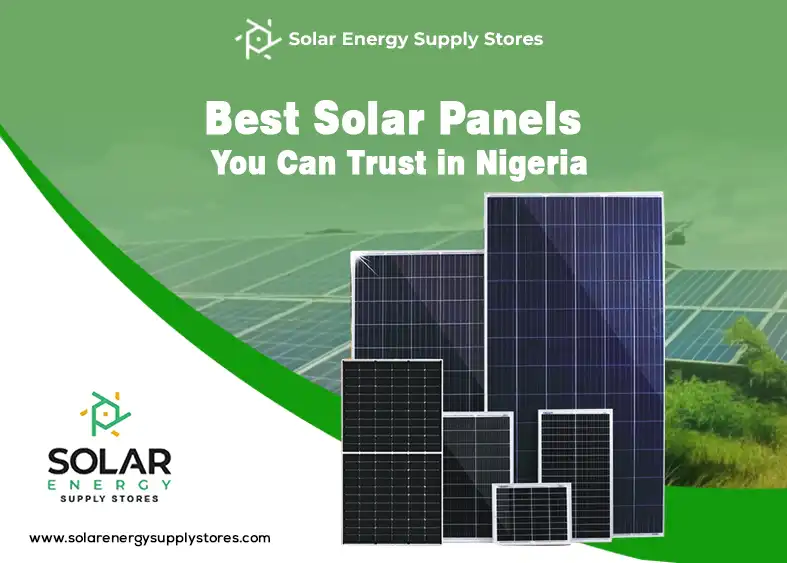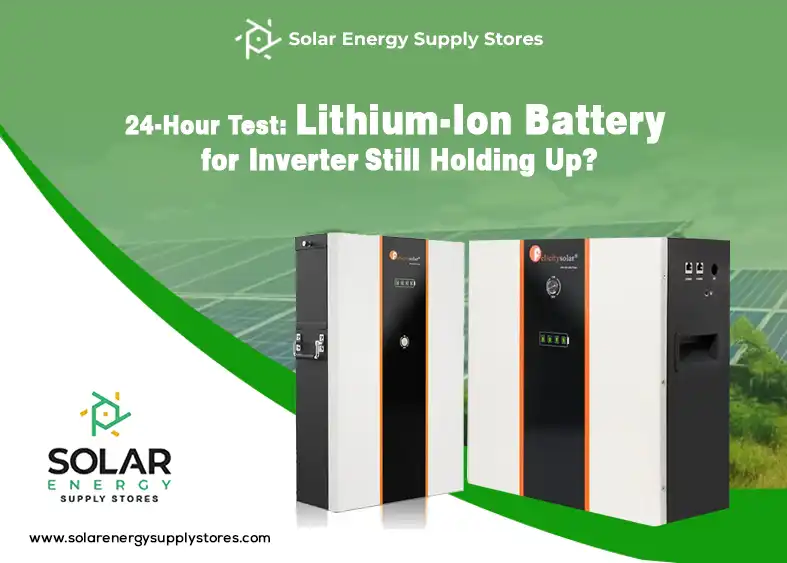Canadian Solar Panel
Canadian Solar Panel Review: 10 Key Features That Make It Worth the Investment] Canadian Solar (panel) is a global leader in solar photovoltaic technology, known for its high-quality panels and innovative solar energy solutions. Founded in 2001 in Ontario, Canada, the company has grown to become one of the top five solar manufacturers worldwide. With over 20 manufacturing facilities and installations in over 160 countries, Canadian Solar has earned its reputation as a reliable provider of Tier 1 solar panels. In Nigeria, where power supply remains inconsistent and diesel costs continue to rise, Canadian Solar panels are increasingly popular for both residential and commercial solar installations. Why Canadian Solar Panels Stand Out What makes Canadian Solar panels worth considering over others in the market? Types of Canadian Solar Panels Canadian Solar offers a wide portfolio of solar modules. The two most common types are: They also have bifacial modules, which generate power from both sides of the panel, increasing energy yield by up to 30%. HiKu Series This is one of Canadian Solar’s most efficient series. HiKu modules are: BiHiKu Series The BiHiKu panels are bifacial and come with PERC technology: Key Specifications and Technologies Canadian Solar integrates top-tier solar innovations, including: Specification Details Efficiency 19.5% – 22.5% Module Type Mono PERC / Bifacial Temperature Coefficient -0.36%/°C Warranty 12 years product, 25–30 years output IEC Certification Yes (IEC 61215 & IEC 61730) PID Resistance Excellent This combination ensures consistent performance in Nigeria’s sunny but extreme conditions. Performance in Nigeria’s Climate Here’s the kicker—Canadian Solar panels thrive in Nigeria’s weather. Unlike panels that drop power output significantly in heat, these panels: You can trust them to keep producing power whether you’re in Abuja, Kano, or Port Harcourt. Canadian Solar vs Other Brands in Nigeria Let’s break down how Canadian Solar compares with other popular brands: Brand Efficiency Durability Price Range (₦) Warranty Canadian Solar ✅ High (up to 22.5%) ✅ Excellent ₦90,000–₦250,000 12–30 years Jinko Solar ✅ High ✅ Excellent ₦80,000–₦220,000 10–25 years Trina Solar ✅ Very High ✅ Great ₦85,000–₦240,000 12–30 years Gennex Solar ⚠️ Medium ✅ Good ₦70,000–₦180,000 10–25 years Felicity Solar ⚠️ Lower ✅ Moderate ₦55,000–₦120,000 10–20 years Cost vs Value While Canadian Solar may cost more upfront, it offers higher long-term savings due to better efficiency, fewer panels needed, and lower maintenance costs. Looking to compare more solar panel brands options? Read our guide on the solar panel price in Nigeria to explore the prices of top-performing solar panel brands. Pricing of Canadian Solar Panels in Nigeria Prices vary depending on wattage, importer markups, and market fluctuations. Here’s a general estimate: Model Wattage Estimated Price (₦) CS3L-355MS 355W ₦90,000 – ₦105,000 CS3W-420MS 420W ₦110,000 – ₦130,000 CS3U-545MS 545W ₦145,000 – ₦170,000 BiHiKu 600W+ 600W+ ₦180,000 – ₦250,000 Tip: Buy in bulk from authorized dealers to reduce costs. Where to Buy Installation and Setup Tips To get the most out of your panels: Maintenance & Warranty Policy Canadian Solar panels require little maintenance, but here’s a simple routine: Warranty includes: Best Use Cases in Nigeria Canadian Solar panels are suitable for: Buyer’s Guide: Choosing the Right Canadian Solar Panel Before you buy, consider the following: Factor What to Look For Panel Wattage 355W – 600W+ depending on power need Installer Certification Use a certified solar installer Mounting System Prefer aluminum or stainless steel racks Voltage Compatibility Match inverter specs Warranty Must be stated on invoice Originality Verification Check serial number and QR code FAQs About Canadian Solar Panels 1. Are Canadian Solar panels Tier 1? Yes, Canadian Solar is a Bloomberg Tier 1 solar panel brand with global recognition. 2. What’s their average efficiency? Efficiency ranges between 19.5% to 22.5%, depending on the model. 3. How long do they last? They come with a 25–30 year performance guarantee, but many last even longer. 4. Can they work in off-grid setups? Absolutely. They’re compatible with both off-grid and hybrid inverters. 5. Are they available in Lagos? Yes, widely available in Lagos, Abuja, Port Harcourt, and across Nigeria. 6. Can I use them with lithium batteries? Yes. Canadian Solar panels work well with lithium, tubular, and GEL batteries. Conclusion If you’re looking for top-tier solar panels that combine efficiency, durability, and global recognition, Canadian Solar Panels are a smart investment. Though they may cost more initially, their long-term benefits in terms of performance and reliability make them ideal for Nigeria’s solar landscape. Whether you’re running a family home or a commercial enterprise, Canadian Solar has a solution that fits






